“What I’m here to tell you is there’s a place for you. There is a problem that your mind can help solve.”
The final 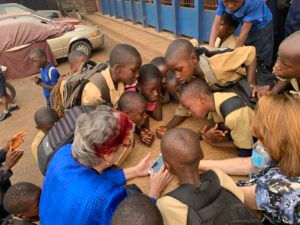 day of the delegation trip began at St. Edwards Primary School, where fellows and mentors saw the work of the 2016 seed grant-winning initiative Reduce, Reuse, Recycle – Kids Can Do It Better (3Rs for Kids). The initiative’s goal is to increase environmental awareness through waste management education programs in local schools. By providing educational materials and leveraging community partners like the Freetown City Council, the group has already implemented their program in three schools. “We have so much passion,” Salwa Campbell shared with the delegates.
day of the delegation trip began at St. Edwards Primary School, where fellows and mentors saw the work of the 2016 seed grant-winning initiative Reduce, Reuse, Recycle – Kids Can Do It Better (3Rs for Kids). The initiative’s goal is to increase environmental awareness through waste management education programs in local schools. By providing educational materials and leveraging community partners like the Freetown City Council, the group has already implemented their program in three schools. “We have so much passion,” Salwa Campbell shared with the delegates.
As fellows and mentors waited on school grounds for the day to begin, students began to trickle in, taking interest in the big group. Soon, mentors were showing young students video games on their phones, playing soccer and even having a foot race before the school day started. Once the students arrived, administration gathered them outside, inviting the fellows and leaders of 3Rs for Kids to the front. The fellows led the entire school in a song they had taught them about disposing of waste responsibly. The students recited the song from memory, singing the lyrics, “reduce, reuse, recycle,” and showing delegates what they had learned about caring for the environment.
Hands-on STEM day
The delegation trip’s final activity was an afternoon of hands-on STEM activities with young women from schools throughout Freetown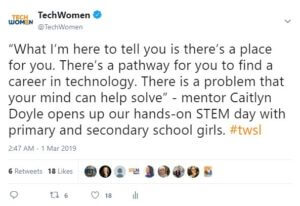 . Fellows kicked off the afternoon speaking about their careers, telling the students about their jobs in engineering, geology, medicine and IT. As the fellows explained how careers in STEM fields can open doors to possibility and opportunity, their presentation slides behind them were proof: they showed the fellows in the field in hard hats, working on complex computer systems and in lab coats in their office.
. Fellows kicked off the afternoon speaking about their careers, telling the students about their jobs in engineering, geology, medicine and IT. As the fellows explained how careers in STEM fields can open doors to possibility and opportunity, their presentation slides behind them were proof: they showed the fellows in the field in hard hats, working on complex computer systems and in lab coats in their office.
After, Impact Coach Caitlin Doyle addressed the group of nearly 100 girls, explaining that the job she has now as an engineering program manager wasn’t something she’d ever heard of at their age. “I started relentlessly studying,” she said, “and always asked engineers to explain their jobs to me. I found technical websites. I read free online resources.”
After the motivating speeches, it was time to begin the hands-on motherboard workshop. Led by mentor Tina Shakour and fellow Umu Kamara, the workshop focused on the fundamentals of basic computing. In groups, the students were tasked with finding the CPU, battery, transistors and memory cards.
After exploring the motherboards, the students transitioned into the next breakout sessions prepared for the day. Mentors and fellows separated into different classrooms throughout the school, leading interactive workshops that used easily accessible and inexpensive materials. In the breakout sessions, mentors and fellows taught about energy by making pinwheel wind turbines, used LEGOs to demonstrate principles of programming and taught coding by teaching students to sew their names in binary on a loom. In the coding workshop led by Jessica Dickinson Goodman and Soniya Goyal, they explained how binary is a human-made language, showing the students how anyone can translate English into binary. Students were then provided the correct binary for the alphabet along with thread, learning to spell their names using 0s and 1s.
After the breakout sessions, primary school students were led by mentor Shalaka Prabhune, who spoke about the importance of reducing, reusing and recycling and tasking them with using creative solutions to address waste management issues. First, students wrote stories about the 3Rs – reduce, reuse recycle – and presented them in front of the group, communicating the importance of respecting the environment. After, students were given building sets and asked to come up with inventions that can address the 3Rs. One group created a machine with long arms that swims into the ocean to gather trash: “I encourage all of us here not to throw our garbage on the floor,” the group leader said. “We are all on this planet.”
Mentors Molly Glauberman and Jill Finlayson guided the second group of secondary school students in a session on design thinking and brainstorming, asking them to choose an issue their community faces and present on how they propose to solve it. After their brainstorming sessions, the students presented their ideas to the entire group of attendees. One group, zeroing in on a region that is particularly affected by sanitation issues, proposed a program that educates the public on dysentery and disease from waste materials. Another group outlined a plan to leverage government-led programs and provide trash bins for every community and school in the region. Schools, they proposed, could designate one day per month a cleaning day where students come together to clean trash around the area.
At the end of the day, as students cleaned the room and threw away their own trash, one student asked for the microphone, sharing what she’d learned during the hands-on STEM activities. “Today gave us the courage to lift up our voices in society,” she said.
A bittersweet farewell
At the farewell dinner, the group gathered to close out an incredible week of collaboration and impact. They were there to celebrate not just individual contributions, but also a greater TechWomen community – a network that had expanded and strengthened through each session, activity and interaction. After a week where inspiration was at every corner, it was clear that with each fellow’s ingenuity, dedication and unwavering commitment to changing their communities, the future of women and girls in Sierra Leone is bright.
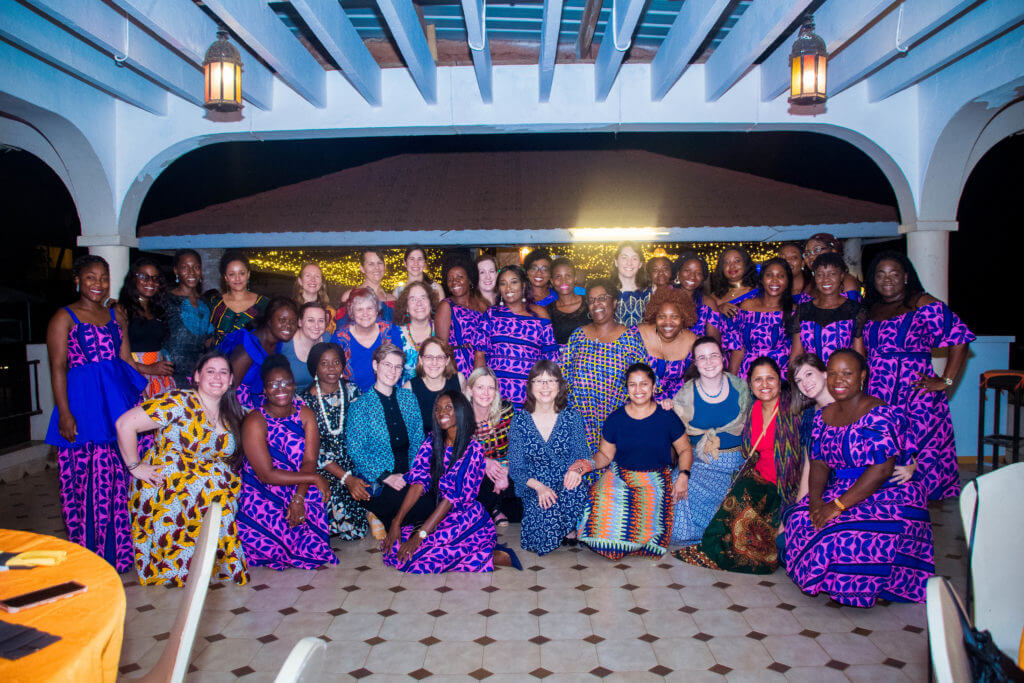 Follow the hashtag #twsl on Twitter for more content from the TechWomen delegation trip to Sierra Leone!
Follow the hashtag #twsl on Twitter for more content from the TechWomen delegation trip to Sierra Leone!

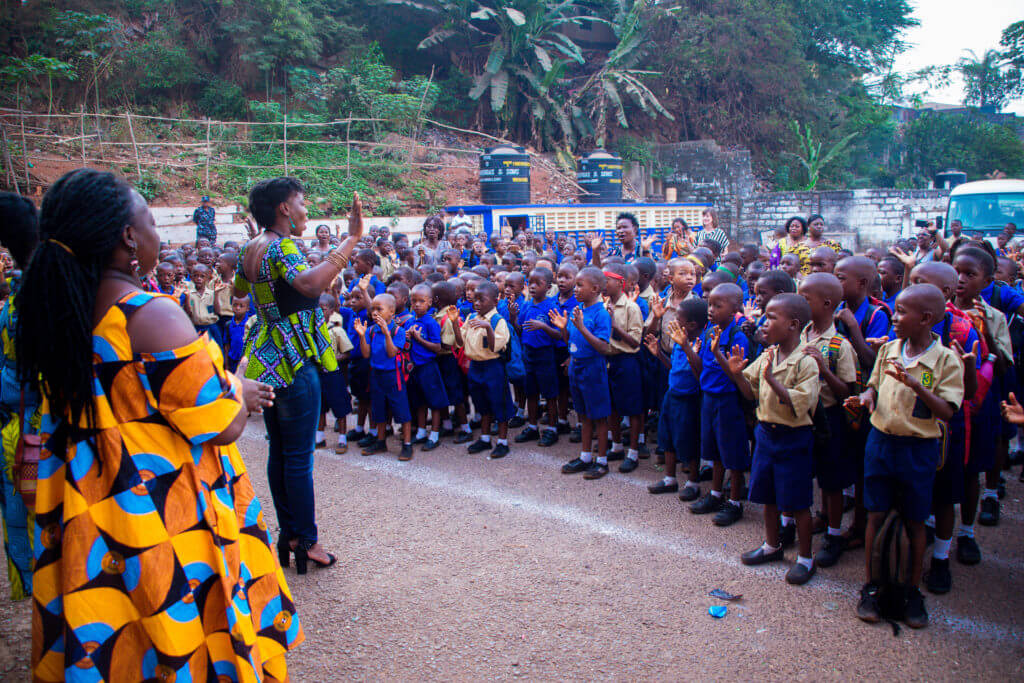
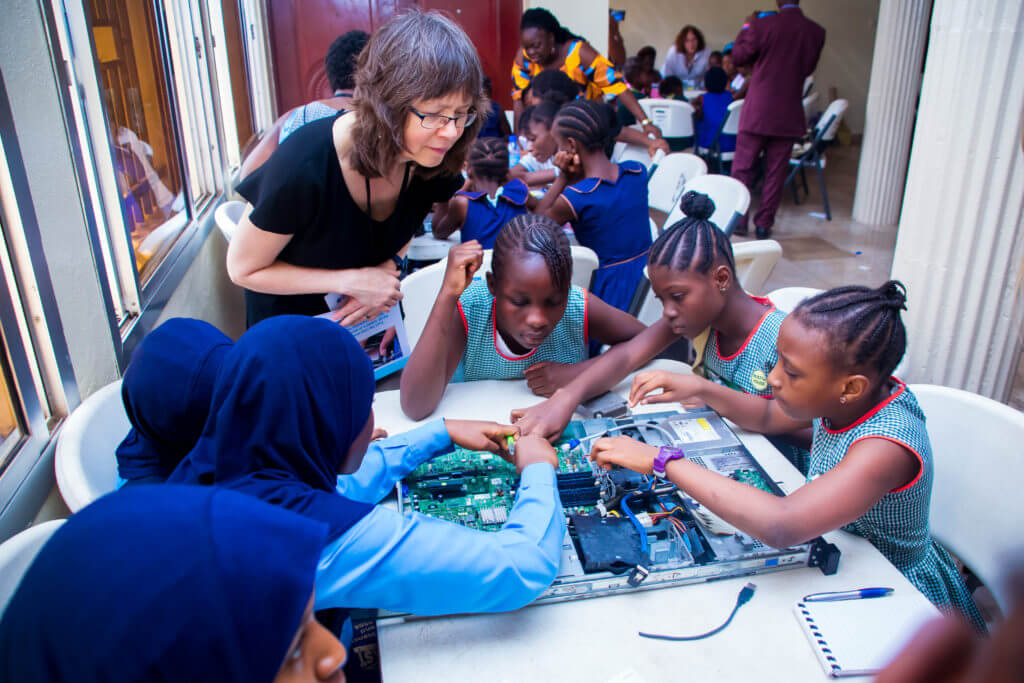
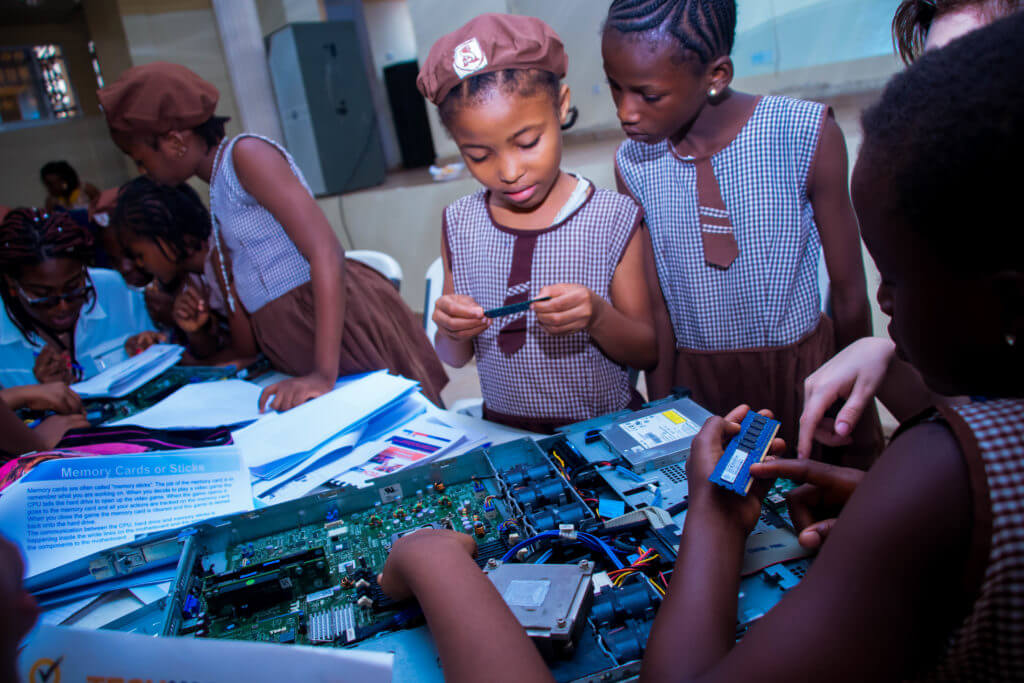
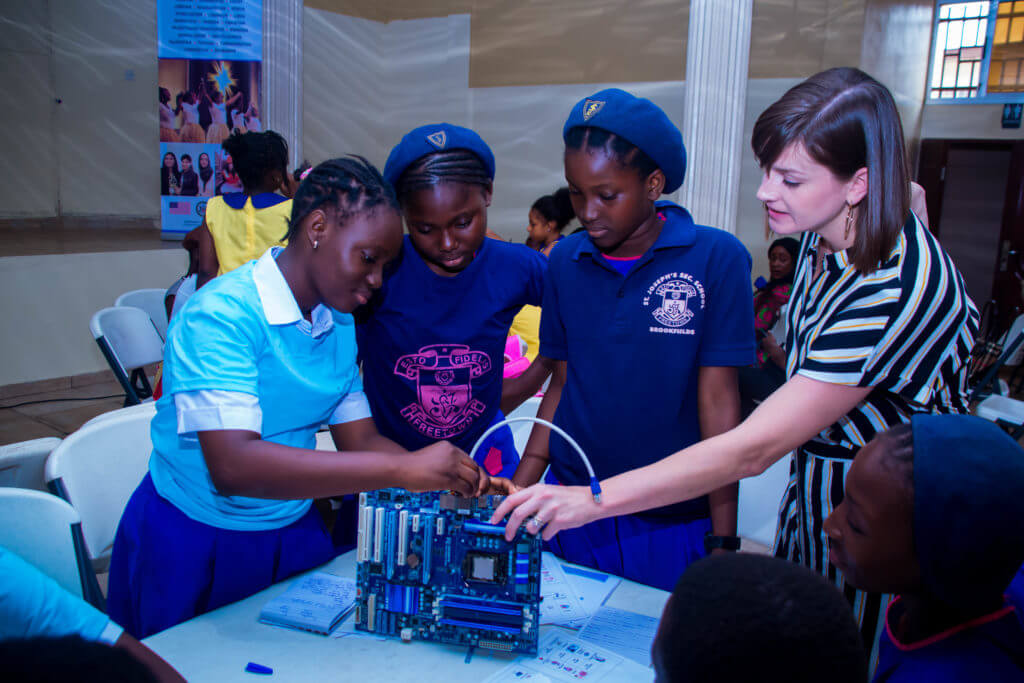
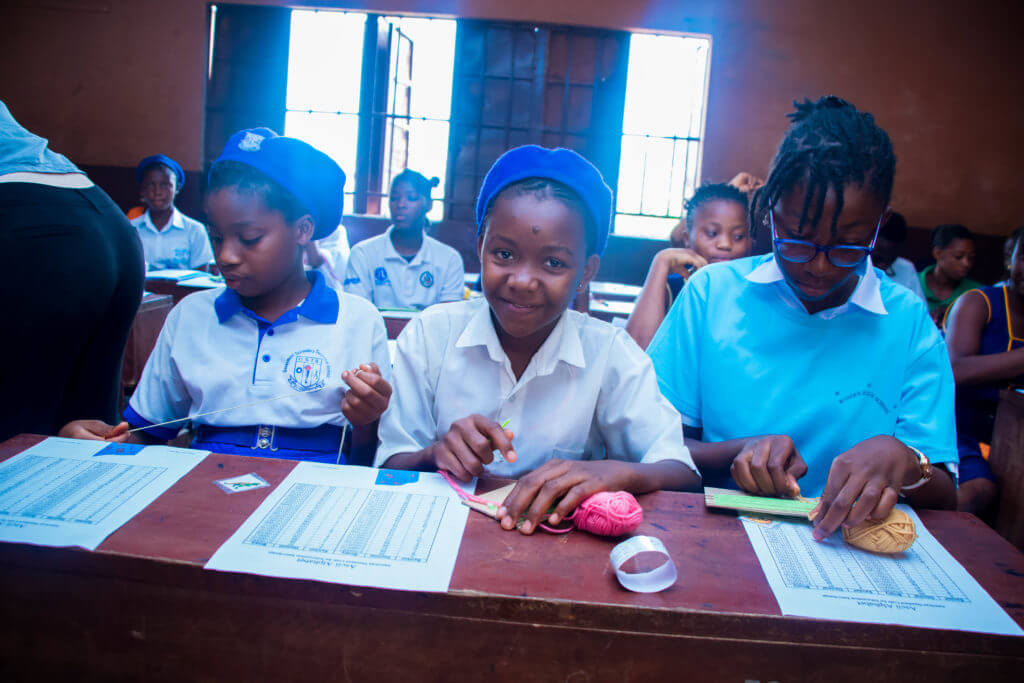
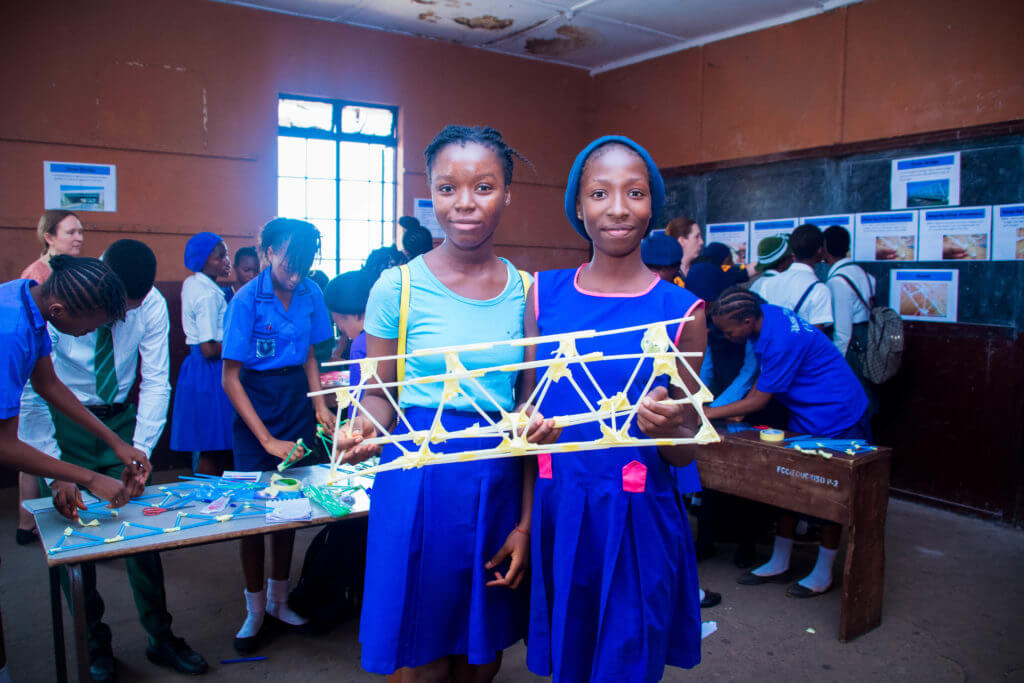
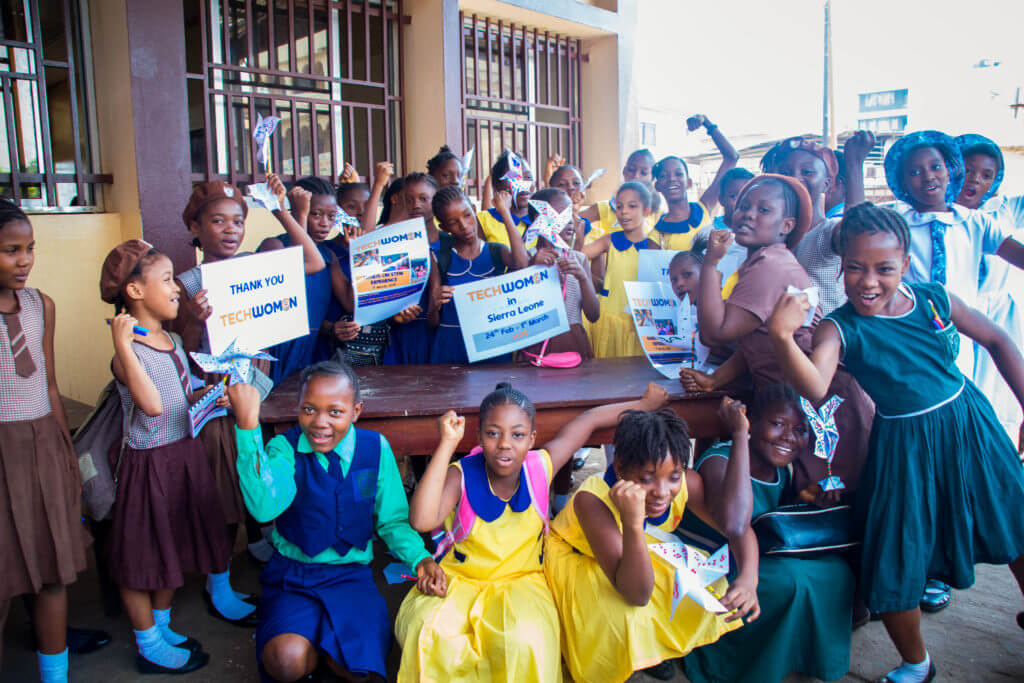
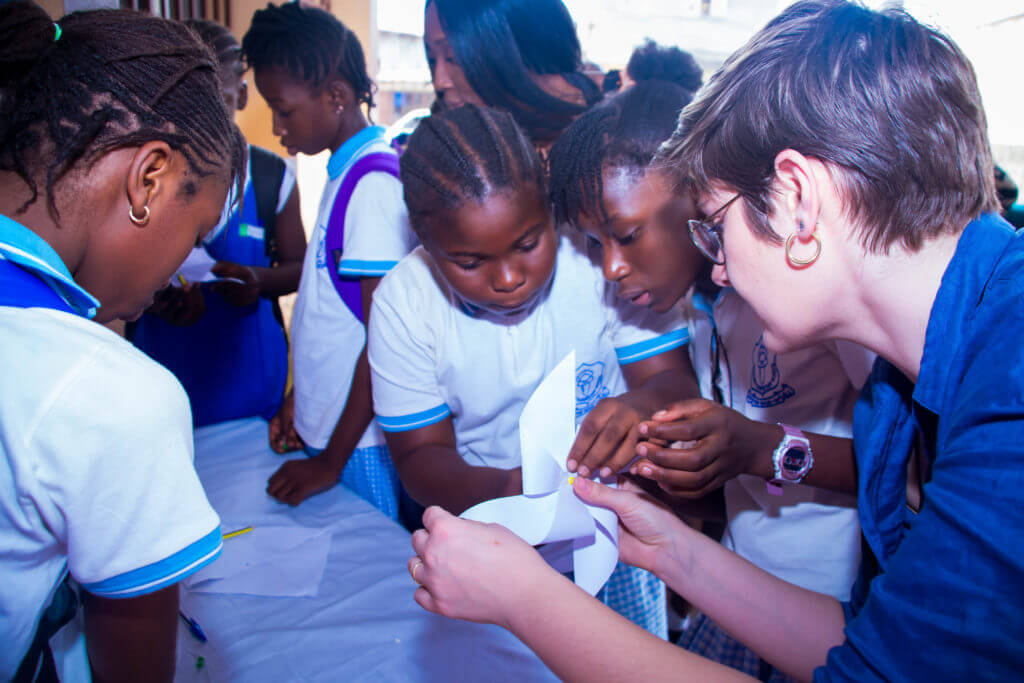
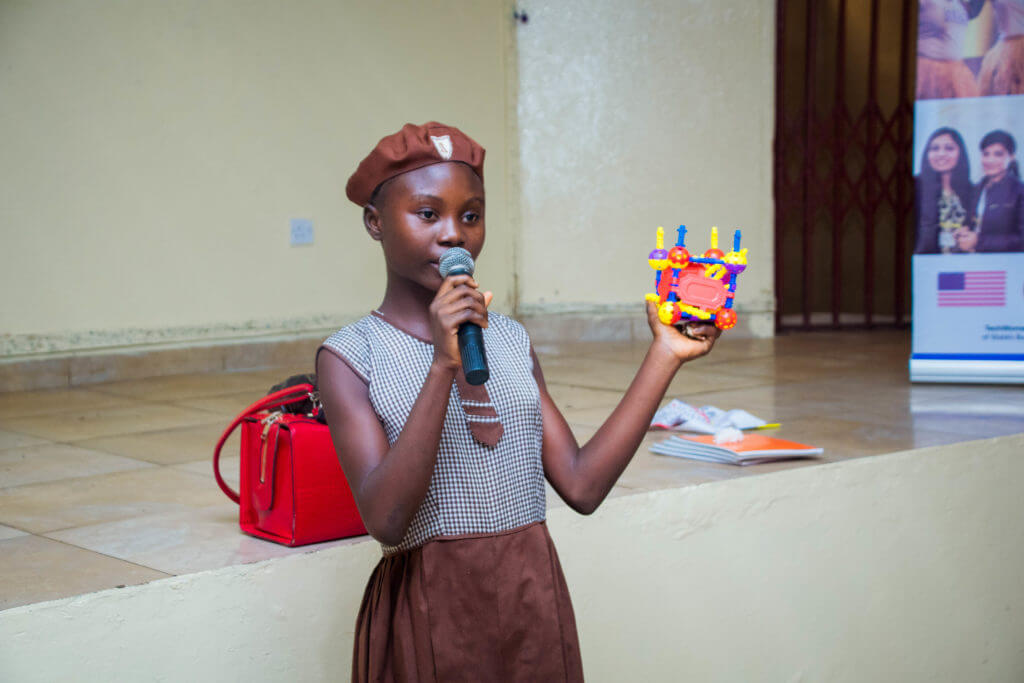
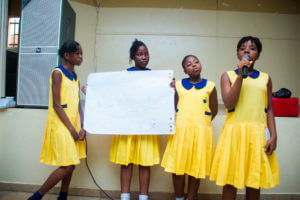
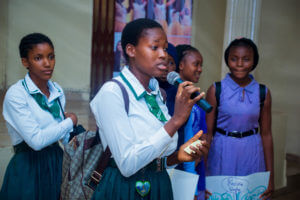
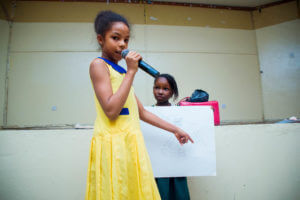

Speak Your Mind